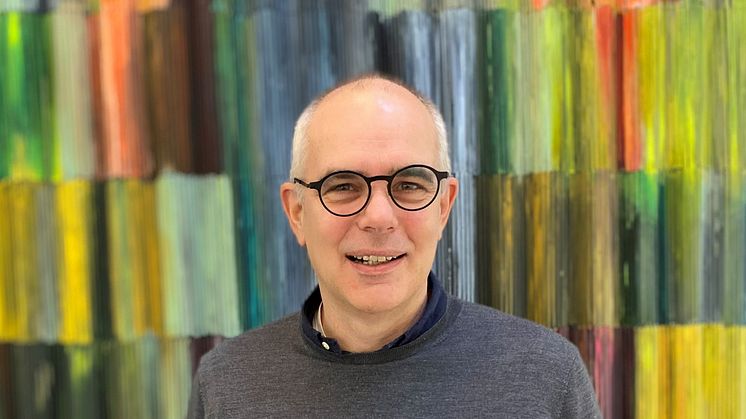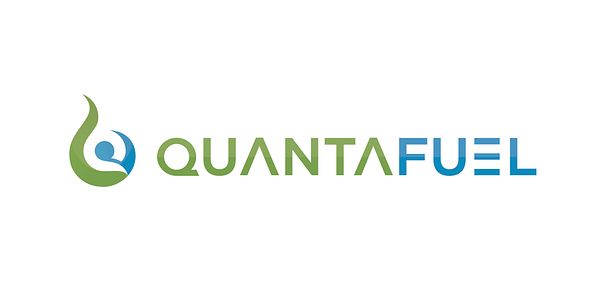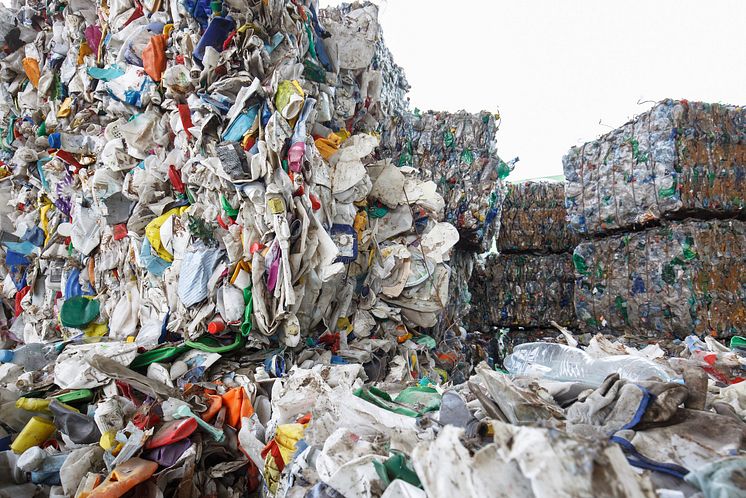
Press release -
Ralf Schöpwinkel becomes CEO of new plastic recycling company
Quantafuel and Geminor's newly established company, Polynate – Circular Plastic Solutions, aims to take a leading position in the value chain for plastic waste recycling in the Nordics and the UK. The company will be led by Ralf Schöpwinkel, who comes from Geminor with 25 years of industry experience.
“I am very motivated to take on the new role. With Polynate, we will take a leading position in the value chain for plastics in the Nordics and the UK,” says Ralf Schöpwinkel.
Schöpwinkel leaves the position of CSO at Geminor, the resource management company he helped establish in nine European countries. Schöpwinkel, who still remains a shareholder at Geminor, brings with him over 25 years of industry experience within recycling and the international waste markets.
Sustainable handling of plastic
Polynate will only focus on plastic waste and its main focus will be on supplying the plastic recycling company Quantafuel's current facilities in Kristiansund, Norway (mechanical plastic recycling), Skive in Denmark (chemical plastic recycling) and its planned facilities in Denmark and the UK. Polynate will also supply plastic waste to Quantafuel’s joint project with Eurazeo - ReSource, Denmark's largest plastic sorting facility in Esbjerg, which will be ready to receive waste from early 2024. Polynate will also enter the British market, where Quantafuel has an ambitious project plan with several Plastic-to-Liquid (PtL) plants the coming years.
“Polynate will be an important contributor in the sustainable treatment and handling of international plastic waste,” says CEO of Geminor, Kjetil Vikingstad.
“Establishing Polynate together with Quantafuel is strategically important for Geminor. Our ambition is to increase our market share and secure new downstream solutions for plastics. It is becoming increasingly important to sort plastics from residual waste, both to secure more feedstock for new plastic products, but also to reduce the fossil content in the waste that is sent to energy recovery,” says Kjetil Vikingstad.
“Chemical recycling is the solution”
“We see a great potential here. Chemical recycling of plastics complements mechanical recycling, and significantly increases the overall recycling rate. Thanks to chemical recycling, it will be easier for many countries to reach their ambitious recycling targets. I am really excited and look forward to focusing exclusively on plastics and supporting the industrialisation of Quantafuel,” says Schöpwinkel.
Quantafuel's core business is chemical recycling, which means that plastic waste is broken down to its original building blocks, consisting of carbon and hydrogen chains, in a pyrolysis process. These are then reassembled into an oil which can be used to produce new high-quality products – such as food packaging – that meet the high demands from the EU and the rest of Europe.

Overview of Quantafuel's facilities in Norway and Denmark:
Quantafuel Skive (Denmark):
Quantafuel's first production plant for chemical recycling of plastics with a capacity to process 20,000 tonnes of plastic waste per year.
Quantafuel Kristiansund (Norway):
At Quantafuel's facility in Kristiansund, plastic sorting and mechanical recycling of mixed, hard plastics, are combined. This is a fraction that often goes to landfill or incineration today. Quantafuel Kristiansund can process up to 20,000 tonnes of plastic a year.
ReSource Denmark (Esbjerg)
The facility is owned 50/50 by Quantafuel ASA and the French green investment fund Eurazeo SE.
ReSource, which will be completed at the turn of the year 2023/2024, will be Denmark's largest plastic sorting facility. ReSource will have a capacity to annually sort up to 160,000 tonnes of mixed plastic waste into recyclable fractions. There is a great need for infrastructure for sorting plastic waste as plastic is incinerated on a large scale or exported abroad. ReSource will be a key contributor to achieving the goals for plastic recycling in the Nordics and beyond once the facility is put into operation.
Quantafuel is a Norwegian technology-based recycling company with the purpose of ending wasteful and unsustainable handling of our planet's resources. Drawing on more than ten years of development, Quantafuel converts waste plastics back into low-carbon synthetic oil products replacing virgin oil products. Quantafuel aims to rapidly build up production capacity on a global scale and to have a meaningful impact on one of our time's most pressing environmental challenges.


